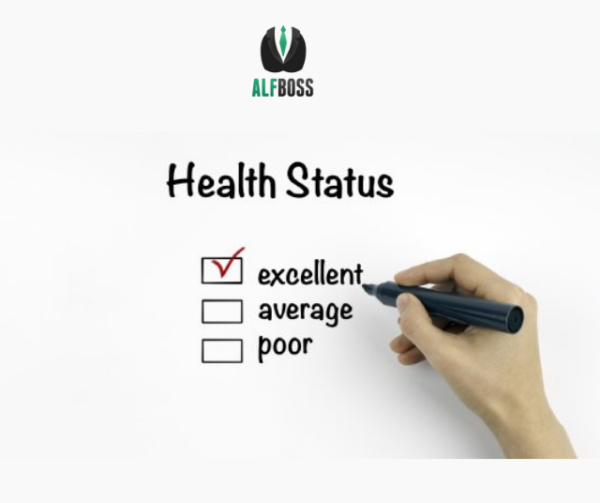
Time and time again we hear from ALFs who are being cited for being out of compliance with staff tuberculosis screening requirements. This issue is without a doubt within the top 10 citations that facilities receive. Why? You may ask. Well, typically it is because there is no process set up for how to track the employees who are needing their yearly screen or due to being short-staffed and not waiting for the results of the two-step screening which leads to the file being put away and not reviewed until an inspector asks for it. Do not be that facility. Put a process together and ensure your compliance with the following regulation provided by MSDH:
Rule 47.11.6 Employee’s Health Status.
All licensed facility personnel shall receive a health screening by a licensed physician, a nurse practitioner/physician assistant, or a registered nurse prior to employment and annually thereafter. Records of this health screening shall be kept on file in the licensed facility.
Rule 47.11.7 Testing for Tuberculosis.
- Each employee, upon employment of a licensed entity and prior to contact with any patient/resident, shall be evaluated for tuberculosis by one of the following methods:
- IGRA (blood test) and an evaluation of the individual for signs and symptoms of tuberculosis by medical personnel; or
- A two-step Mantoux tuberculin skin test administered and read by a licensed medical/nursing person certified in the techniques of tuberculin testing and an evaluation of the individual for signs and symptoms of tuberculosis by a licensed Physician, Physician’s Assistant, Nurse Practitioner, or a Registered Nurse.
- The IGRA/Mantoux testing and the evaluation of signs/symptoms may be administered/conducted on the date of hire or administered/read no more than 30 days prior to the individual’s date of hire; however, the individual must not be allowed contact with a patient or work in areas of the facility where patients have access until receipt of the results of the IGRA/assessment or at least the first of the two-step Mantoux test has been administered,/read and assessment for signs and symptoms completed.
- If the Mantoux test is administered, results must be documented in millimeters. Documentation of the IGRA/TB skin test results and assessment must be documented in accordance with accepted standards of medical/nursing practice and must be placed in the individual’s personnel file no later than 7 days of the individual’s date of employment. If an IGRA is performed, results and quantitative values must be documented.
- All staff noted as negative per the IGRA blood test or who do not have a significant Mantoux tuberculin skin test reaction (reaction of fewer than 5 millimeters in size) shall be retested annually within thirty (30) days of the anniversary of their last IGRA or Mantoux tuberculin skin test. Staff exposed to an active infectious case of tuberculosis between annual tuberculin skin tests shall be treated as contacts and be managed appropriately. Individuals found to have a significant Mantoux tuberculin skin test reaction and a chest x-ray not suggestive of active tuberculosis, shall be evaluated by a physician or nurse practitioner/physician assistant for treatment of latent tuberculin infection.
- The individual is currently receiving or can provide documentation of having received a course of tuberculosis prophylactic therapy approved by the Mississippi State Department of Health (MSDH) Tuberculosis Program for tuberculosis infection, or
- The individual is currently receiving or can provide documentation of having received a course of multi-drug chemotherapy approved by the MSDH Tuberculosis Program; or
- The individual has a documented previous significant tuberculin skin reaction or IGRA reaction.
- For individuals noted to have a previous positive to either Mantoux testing or the IGRA, annual re-evaluation for the signs and symptoms must be conducted and must be maintained as part of the employee’s annual health screening. A follow-up annual chest x-ray is NOT required unless symptoms of active tuberculosis develop.
- If using the Mantoux method, employees with a negative tuberculin skin test and a negative symptom assessment shall have the second step of the two-step Mantoux tuberculin skin test performed and documented in the employees’ personal record within fourteen (14) days of employment.
- The IGRA or the two-step protocol is to be used for each employee who has not been previously skin tested and/or for whom a negative test cannot be documented within the past 12 months. If the employer has documentation that the employee has had a negative TB skin test within the past 12 months, a single test performed thirty (30) days prior to employment or immediately upon hire will fulfill the two-step requirements. As above, the employee shall not have contact with residents or be allowed to work in areas of the facility to which residents have routine access prior to reading the skin test, completing a signs and symptoms assessment, and documenting the results and findings.
- Facilities shall comply with recommendations from the Centers for Disease Control and/or the Mississippi State Department of Health regarding baseline employee TB testing and routine serial employee TB testing and education. Staff exposed to an active infectious case of tuberculosis shall be treated as contacts and be managed appropriately. Individuals found to have a significant Mantoux tuberculin skin test reaction and a chest x-ray not suggestive of active tuberculosis, shall be evaluated by a physician or nurse practitioner for treatment of latent tuberculin infection.
- Any employee noted to have a new positive IGRA, a newly positive Mantoux skin test, or signs/symptoms indicative of tuberculin disease (TB) that last longer than three weeks (regardless of the size of the skin test or results of the IGRA), shall have a chest x-ray and be evaluated for active tuberculosis by a licensed physician within 72 hours. The employee shall not be allowed to work in any area where residents have routine access until evaluated by a physician/nurse practitioner/physician assistant and approved to return. Exceptions to this requirement may be made if the employee is asymptomatic and;